
Publisher:
Bonnie King
CONTACT:
Newsroom@Salem-news.com
Advertising:
Adsales@Salem-news.com

~Truth~
~Justice~
~Peace~
TJP
Nov-28-2012 12:42

 TweetFollow @OregonNews
TweetFollow @OregonNews
Argentina: Justice vs. The Rule of Law
Eddie Zawaski for Salem-News.comThe order of a judge in New York could cause havoc to Argentina's economy.
 Argentine President Cristina Fernández de Kirchner |
(PATAGONIA, Argentina ) - In December of 2001 Argentina suffered perhaps the worst economic collapse in its history and eleven Decembers later, the nation faces the possibility of a another collapse should history repeat itself and Argentina defaults a second time. 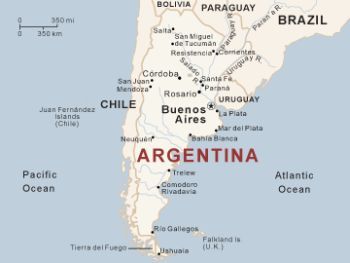 The first default came as a result of the Argentine treasury having run dry. This time the treasury is flush but a default is being ordered by a US Federal Court judge in New York City.
The first default came as a result of the Argentine treasury having run dry. This time the treasury is flush but a default is being ordered by a US Federal Court judge in New York City.
Argentine lawyers argued to judge Thomas Griesa that ordering a stop on payments to Argentine external debt would result in a default and consequent economic disaster for the nation. The New York District Court judge ruled that Argentina's argument constituted a threat, a defiance of a legal court order, and ordered Agentina to pay its debt on a court-ordered schedule. Argentina has held that it will honor its legitimate debts and pay on schedule despite Judge Griesa's insistence on putting doubtful creditors to the front of the line on Argentina's payment schedules.
This situation has come about as a result of a lawsuit brought forward by NML Capital and some other investment firms to recover the full face value of some of the bonds that were defaulted in 2001. Despite having paid only pennies on the dollar for these bonds, these vulture funds are seeking to be paid in full and to get paid before any of Argentina's other legitimate creditors.
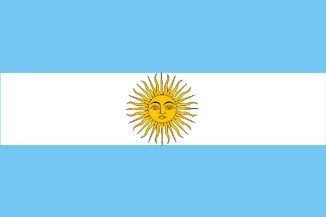
The majority of Argentina's creditors are bond holders who did not sell out to vultures when the default occurred in 2001. They waited until a new government in Argentina offered to exchange the defaulted bonds for new bonds that would allow them to recover their losses. Since Argentina's bond swaps were made, the original creditors have been receiving regular payments on their new bonds. Argentina has vowed to keep on paying what it considers it's legitimate debts but not give a penny to the vultures. If, however, the US District court can enforce its order and prevent Argentina from making its debt payments on the second of December, a new default and subsequent economic collapse may ensue.
Argentina's economy is being held hostage by the vulture funds.
For legal purposes, Judge Griesa has refused to recognize the existence of such a thing as a financial vulture, someone who seeks out depressed or endangered investments and snaps them up at a low price in the hope of reaping a huge windfall. The means by which someone acquires debt ownership was apparently irrelevant to Judge Griesa when he decided to put NML Capital at the head of the line when Argentina makes its next debt payment in December. Had NML simply stolen Argentina sovereign debts bonds, they could still be legally put at the head of the line when December rolls around.
Is paying the vulture funds just and right?
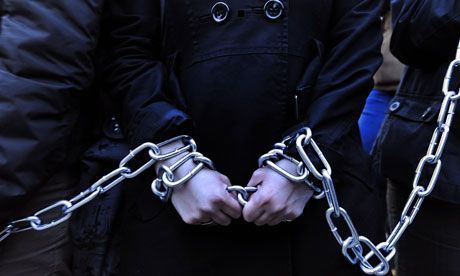
It's quite difficult to see a court-ordered 1000% windfall profit as just under almost any circumstance. NML and the other vultures bought up Argentine debt in 2001 for a tenth of its face value and now seek to collect in full. Moreover, these funds have suffered no harm in bringing forth their suit. The original bond holders from before 2001 are the parties that are hurting. Some of the more well-known among them are Japanese and Italian pension funds who had to reduce payments to their beneficiaries as a result of the default.
After swapping those defaulted bonds, the original bondholders have recovered. Should the current judgement against Argentina hold, these original bondholders will suffer a new blow as Argentina will have been forced into a technical default. This is the primary reason the original bondholders have joined Argentina in appealing Judge Griesa's ruling. Their investments are being held hostage by the vultures.
Nestor Kirchner and subsequent president Cristina Fernandez de Kirchner both offered bond swaps to the vulture funds. Had they accepted the offer, NML and the others would have realized a return of 300-400% on their investment, but they chose to hold out. Since the last bond swap two years ago, about 10% of the original debt remains in the hands of these holdouts. In court documents and in the mainstream media, these funds are referred to as "holdout investors", a much more sanitary term than vulture funds.

The vultures have been using a variety of legal maneuvers to realize their expected windfall. They have gotten some Argentine overseas assets frozen by friendly courts and have even succeeded in seizing Argentina's state property. They have several times attempted to seize Tango One, the official jet used by Argentina's president. Currently they have Argentina's naval training vessel impounded in a port in Ghana. The suit in Griesa's court to recover full payment now is the latest and strongest attempt at squeezing the money out of Argentina.
Apparently, putting vultures to the head of the line for full payment ahead of all others is legal according to US law. Sovereign default is not the same as a personal bankruptcy. If you were bankrupt, the court would reorganize your debt and put you on a schedule to pay your creditors at a reduced rate and perhaps pay nothing at all. In Argentina's case, the nation itself reorganized its debt, put its creditors on a reduced payment schedule and decided to ignore the vulture holdouts.
Is a new economic collapse likely in Argentina?
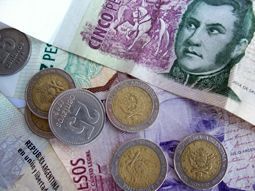
The vultures seem to think that Argentina is vulnerable right now. While the economy has been growing robustly in the the past decade and continues to do so, there have been cracks showing lately. Persistent inflation and currency exchange regulations have been disquieting to many middle class Argentines and economic growth is slowing. The most dangerous crack was recently pointed out by the renowned economic guru Nouriel Roubini who opined that Argentina was suffering from an increasing lack of access to international credit markets.
Argentina insists that lack of access to credit is not a bad thing. Since its economy was reorganized in 2003, Argentina has largely gotten by without borrowing. This was and continues to be a purposeful policy. The Kirchners, Nestor and Cristina, have managed a decade of solid economic growth on a pay as you go basis. They managed to make and keep deals with 93% of the original bondholders and pay off their IMF loans in full. With a positive balance of payments, shrinking debt and a debt to GDP ratio lower than the United States, Argentina does not appear to be teetering just yet. Should the international financial well go completely dry, it probably won't hurt Argentina as they weren't using it anyway.
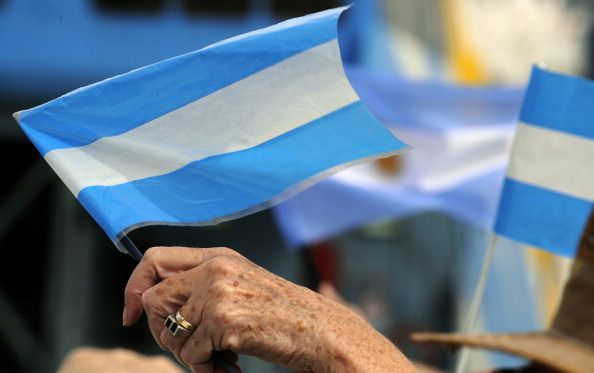
Could Argentina pay off the vultures and be done with them?
Currently Argentina has over 40 billion dollars US in currency reserve, four to five times what the vultures claim they are owed. President Fernandez could simply order her treasury to cut them a check and be done with it. Such a move might cause problems with the other bondholders, but not any problems so serious they couln't be worked out. What prohibits Argentina from paying the vultures is a matter of principle. Argentina insists it is unjust to pay full face value to speculators who acquired their debt under dubious circumstances. While the claim of the vultures may be found to be legal by some court, it is nonetheless unjust.
It all comes down to a matter of justice vs. the rule of law. If you believe in fairness, transparency and legitamacy in financial dealings then Argentina is right to hold out against those seeking unreasonable demands. If you believe in the strict interpretation of the words written into a debt contract, then Argentina doesn't have a case. Apparently justice is not an issue in Judge Griesa's court.
The unstated issue, theft.
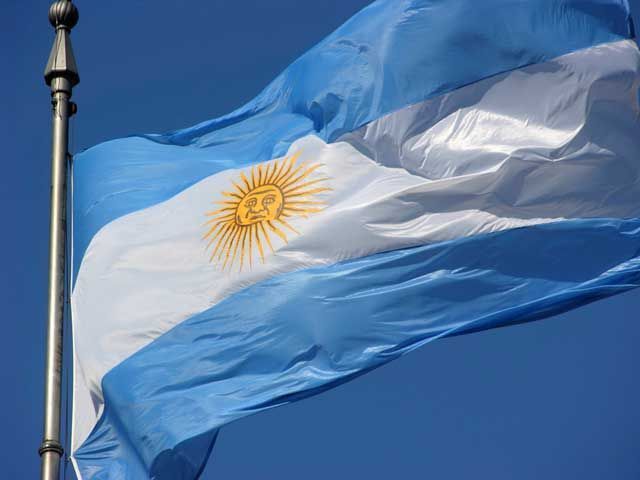
In refusing to refer to NML and it's allies as vultures, the US district court refuses to recognize financial theft. This is part of a bigger legal problem in our society. There are all kinds of financial transactions that allow large investors to realize enormous profits through the use of accounting rules and legal procedures. Vast sums can be transferred to those who simply know how to manipulate the financial system to their own advantage. Legally, these manipulations are not theft because no law has been written to define them as such. Financial vultures and thieves will not branded as such any time soon, because they have too much influence over the politicians who write the laws and appoint the judges who protect them.
Will there be a default and a new economic collapse in Argentina?
Despite deadlines only days or weeks away, it is impossible now to predict what will happen. Certainly there are economists who will confidently predict this or that, but there are still some unknown factors. One thing is whether or not the court ruling can be enforced. Argentina usually pays its debts through international financial agents. Will they ignore Argentina's order to make payment or ignore the court order to withhold? If they do withhold payment, can Argentina find some other way to get its scheduled payments to its creditors? Will an appeal put judge Griesa's order on hold?
The only prediction that's certain is that Argentina will have to suffer an economic and political collapse before the vultures will get their money.
Eddie Zawaski is a contributing Salem-News.com writer based in Patagonia, Argentina.
 |
Articles for November 27, 2012 | Articles for November 28, 2012 | Articles for November 29, 2012



Quick Links
DINING
Willamette UniversityGoudy Commons Cafe
Dine on the Queen
Willamette Queen Sternwheeler
MUST SEE SALEM
Oregon Capitol ToursCapitol History Gateway
Willamette River Ride
Willamette Queen Sternwheeler
Historic Home Tours:
Deepwood Museum
The Bush House
Gaiety Hollow Garden
AUCTIONS - APPRAISALS
Auction Masters & AppraisalsCONSTRUCTION SERVICES
Roofing and ContractingSheridan, Ore.
ONLINE SHOPPING
Special Occasion DressesAdvertise with Salem-News
Contact:AdSales@Salem-News.com

Terms of Service | Privacy Policy
All comments and messages are approved by people and self promotional links or unacceptable comments are denied.
eddie zawaski November 29, 2012 3:10 pm (Pacific time)
But there is good news.
The second appellate court today accepted Argentina's appeal. Griesa's order is suspended until at least February 27 and there will be no default on December 2.
In response to today's decision, Argentina has made a renewed offer to the vultures to accept a debt swap on the same basis as accepted by the other 93% of bondholders. No comment from the big bad birds.
When the appellate court hears the case, anything can happen. If they confirm Griesa's ruling, Argentina will appeal to the supreme court. That typically takes two years. If the appellate court hears the case over, that will take several months to a year. Public statements by Griesa and court documents written by him suggest that the judge may not be entirely impartial when it comes to Argentina.
Paul Singer is the multibillionaire behind all this vulture maneuvering. I wonder how many times Paul has had lunch with Judge Griesa. I'm willing to bet that Judge Griesa has never lunched with or received and donations from Argentina's chief executive.
Editor: Thanks so much Eddie!
gp November 29, 2012 11:22 am (Pacific time)
and the opposite of the debt vultures are the debt angels. http://strikedebt.org/
[Return to Top]©2025 Salem-News.com. All opinions expressed in this article are those of the author and do not necessarily reflect those of Salem-News.com.